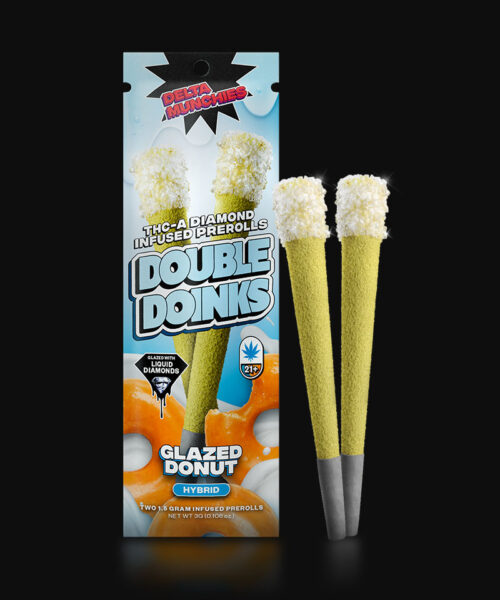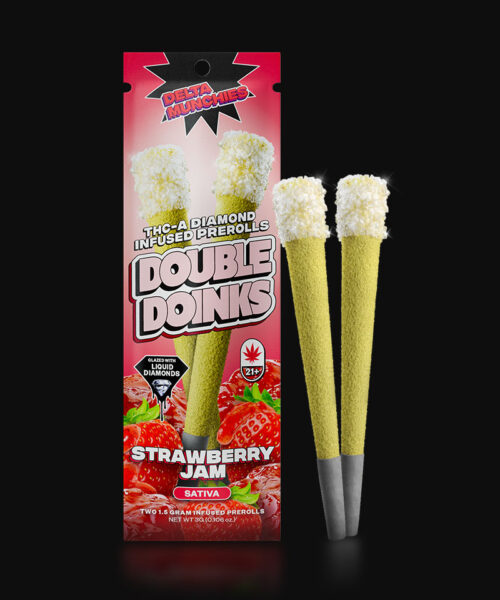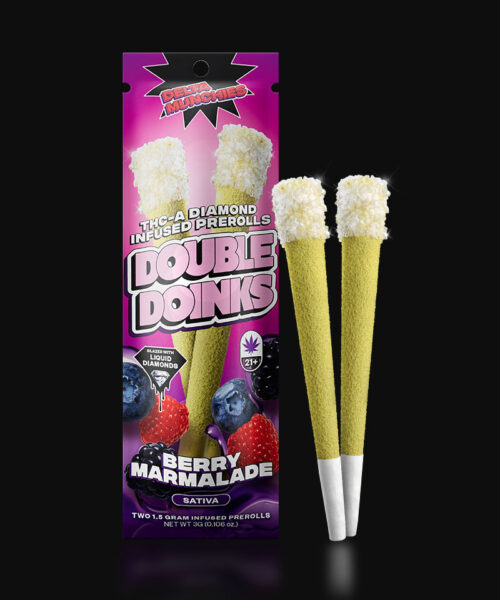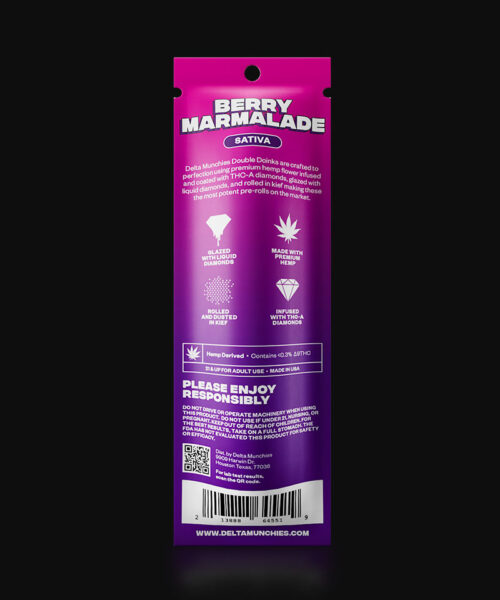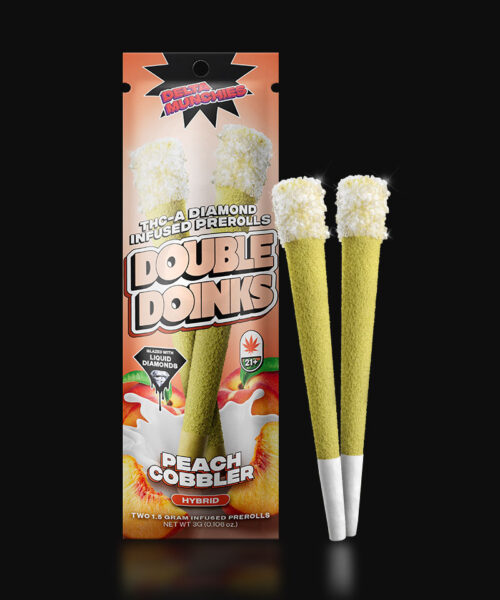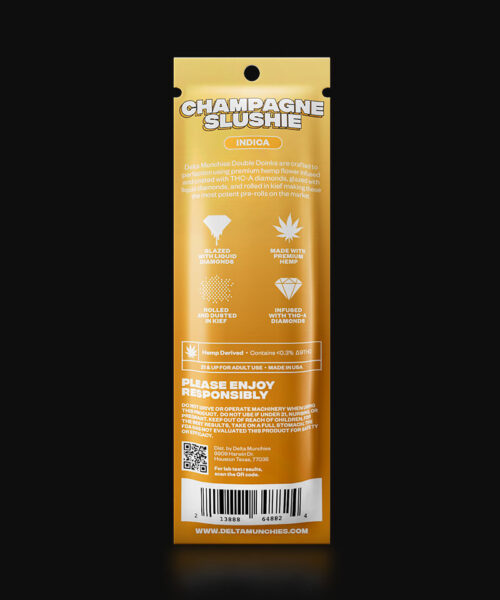So, you have been having a great time with THCA products and enjoying the results. After all, THCA does not produce the psychoactive effects associated with THC. That is if you consume it in its natural form.
However, if you have been doing THCA vapes, pre rolls, and heated edibles, you may want to read this article to the end. That is because if you have an upcoming drug test, chances of passing that test hang in the balance.
However, there is no need to worry. We tell you whether THCA shows up on a drug test and how to flush it out of your system. But before we get into that, let’s start from the top.
Key Takeaways
- THCA decarboxylates and forms THC—the primary psychoactive compound in cannabis.
- THCA is not psychoactive but turns into THC when exposed to heat and light.
- The pharmacology of THCA is still under investigation, but it has potential therapeutic implications.
- THCA is most likely detectable in drug tests, given its close similarity to THC.
What is THCA, and How is it Different from THC?
THCA, full name tetrahydrocannabinolic acid, is a compound in live cannabis. It belongs to the cannabinoid family and has close relations with THC. You may recognize THC from the famous high you get from smoking weed.
THCA is a different kettle of fish despite its similarity to THC. To begin with, it is non-psychotomimetic, i.e., it does not make you high. This is because it does not bind to the CB1 receptor as THC does. Instead, it preferentially binds to TRP ion channel receptors, but more on this later.
As such, the fundamental difference between THCA and THC is their functional groups. THCA has a carboxyl (COOH), while THC has a hydroxyl (OH) functional group. Let’s explain briefly.
In organic chemistry, a functional group is a grouping of atoms that determines a compound’s chemical characteristics and reactions. The carboxyl group does not interact with cannabinoid receptors (CB1 and CB2), hence the reason THCA is non-psychoactive.
On the other hand, THC’s hydroxyl group has a high affinity for CB receptors, which explains THC’s psychoactive nature.
However, THCA quickly changes to THC when exposed to heat, air, and light. This process—decarboxylation—commences soon after cannabis material is harvested. During drying and curing, a substantial amount of THCA transforms into THC. But maximum conversion happens when you heat cannabis.
This is why smoking THCA flower, vapes, concentrates, or eating heated THCA edibles can lead to a positive drug test.
Another key difference between THCA and THC touches on their legality. According to the 2018 Farm Bill, cannabis with less than 0.3% THC (hemp) is legal, as are its derivatives. THCA naturally occurs in hemp, essentially implying it is federally legal.
THC’s legality is blurry because, whereas the Controlled Substances Act expressly labels it a Schedule I drug, amendments were made to exempt hemp-derived “tetrahydrocannabinols.” Make no mistake, though; hemp-derived THC and marijuana-hemp THC are the same.
Does THCA Show on a Drug Test?
Now to the all-important question; does THCA show on a drug test? The answer is more complex than a simple yes or no for two reasons. One, THCA is a complex compound that exhibits a dual nature. Two, drug tests primarily target THC metabolites, not THCA.
You see, in its natural form (as it exists in live cannabis), THCA may be undetectable by drug tests. This is because it is not a THC metabolite. But when heated, it turns into THC.
When THC reaches the liver, it is broken down into two metabolites – 11-hydroxy-tetrahydrocannabinol (11-OH-THC), which further oxidizes into 11-nor-9-carboxy-tetrahydrocannabinol (THC-COOH). The latter is excreted in urine as a glucuronic acid conjugate, which is what drug tests typically detect.
But it is also possible for THCA to show on a drug test. How? Well, just like THC, THCA is likely broken down in the liver into THC metabolites. The exact science is unclear, but given the close semblance to THC, THCA may be processed more or less the same.
Does Non-decarboxylated THCA Show Up on a Drug Test?
Let’s start by explaining what non-decarboxylated THCA is. It is essentially THCA in its natural form—pure and unadulterated. This is the THCA you extract from freshly harvested cannabis.
So, does it show up on a drug test? Conventional drug tests typically look for THC metabolites, particularly THC-COOH. Standard drug tests (5-panel basic tests) screen for marijuana, among other drugs.
Whether non-carboxylated THCA shows up on a drug test depends on the test type. Generally, more sensitive drug tests are more likely to detect other cannabis analytes like THCA.
Does THCA Make You Fail a Drug Test?
It is not a given that if you take THCA, you will automatically fail a drug test. More often, it depends on the type of THCA product you take. For instance, the risk of failing a drug test is higher if you smoke THCA or eat heated THCA products.
The reason, as we have explained, is that heat converts THCA into THC. One way of potentially beating that drug test is by consuming raw THCA. Still, whether the liver metabolizes THCA into detectable THC metabolites is unclear.
But in such matters, it is better to err on the side of caution. THCA may or may not cause you to fail a drug test. However, is it worth the risk if your job or career is on the line? Certainly not! So, it is best to avoid hemp products that contain “tetrahydrocannabinols” if you want to be safe.
What is THCA on a Drug Test?
The thing with screening tests is that they are not typically designed to detect THCA. Remember, this is a new cannabinoid just getting into the limelight. The designers of these drug tests probably did not even know about it when developing the tests.
However, the danger is that it is easy for sensitive tests to mistake THCA for THC, i.e., false positives. Keep in mind that the chemical characteristics of both cannabinoids are near-similar, so a false positive is not entirely farfetched.
Newer screening methods are more sensitive, so it is increasingly possible that THCA will show on a drug test.
How Long Does THCA Stay in Your System?
The worry for most cannabis users is the length of time cannabis compounds stay in their system. And we get it; you probably did not know THCA may be detectable. So, now you want to know if the compound could be in your system by the time you take that test. Well, this depends on several factors, such as:
- Potency
- Dosage
- Frequency of use
- Body fat
- Method of consumption
- Metabolism
So, as you can see, THCA’s duration in your system is not exact. Logically, if you use THCA frequently, you can be sure it will remain detectable longer. The same goes for using high-potency THCA products, having a slow metabolism, and having more body fat.
That said, researchers are yet to figure out how long THCA stays in the system. However, since it is most likely broken down into THC-COOH, we can deduce this from existing studies. A 2001 study found that THC-COOH is detectable in serum at concentrations of 14-49ng/ml. Its levels peaked 1-3 hours after use and remained detectable for up to 74.3 hours.
Regarding the duration THC-COOH remains detectable in the body, another study concluded it depends on the route of administration and body fluid tested. For instance, this study showed that:
- THC-COOH is detectable in saliva for up to 48 hours.
- THC-COOH is present in the blood for up to 20 hours.
- THC-COOH is present in urine for 3-4 days.
- Hair follicles can hold THC-COOH for up to 90 days.
Note that these figures apply for first use. Naturally, the duration of detection increases with the frequency of use. In heavy users, the detection window can be as long as 45 days in urine.
What Drug Tests Can Detect THCA?
As the cannabis world continues to evolve, so do the various drug tests for detecting drug use. Keep in mind that marijuana is still illegal in most parts, so its use is forbidden. Several screening tests can potentially detect THCA.
Urine Tests
These are the most common owing to their simplicity, cost-effectiveness, and quick feedback time. There are two types of urine screen tests — immunoassays (IA) and gas chromatography-mass spectrometry (GC-MS).
An IA test is less sensitive and can also give false positives. A GC-MS test is more reliable and detects more substances. But it is expensive and needs more time to yield results. As such, it is mostly preferred as a follow-up test.
Urine tests have a longer detection window of several days to more than a month, depending on the frequency of use. Generally, THC levels of 50 ng/ml and above can guarantee a positive drug test. If the THC levels are lower, a negative test is possible. However, a confirmation test, which is usually more sensitive, can be used to validate earlier findings.
Saliva Tests
When you take cannabis orally, significant amounts of cannabis compounds remain in the mouth. These increase in concentration several hours after use.
Saliva tests have short detection windows (1-3 days) and are ideal for detecting recent drug use. However, they are prone to contamination. A good quality saliva-neutralizing mouthwash is usually enough to clear drug metabolites from the mouth.
Blood Tests
THC metabolites stay in the blood for relatively short periods (3-7 days). During this window, blood screening tests can detect them. However, blood tests are not commonly used because they are invasive. Moreover, THC levels in blood plasma diminish 3-4 hours after use.
Hair Follicle Tests
Hair follicle tests have the longest detection window (up to 90 days). However, they are not suitable for detecting recent or light cannabis use.
Is THCA Legal?
Yes, THCA is federally legal, going by the 2018 Farm Bill. However, this law allows states to develop regulations for hemp production and processing within their jurisdictions. As a result, the legality of THCA varies across the board.
It is best to research hemp laws within your state or those you plan to visit to ensure you remain compliant.
How to Get THCA out of Your System
If you have a drug test coming up, here are ways that can help you get THCA out of your system.
Abstain from THCA products
The best way to keep THCA out of your system is to abstain. Just avoid hemp products that contain THC-like cannabinoids.
Exercise
Remember, cannabinoids are highly lipophilic, i.e., they attach to fat molecules. As such, fat molecules act as storage for cannabinoids. Exercising helps burn excess fat, releasing stored cannabinoids into the system for subsequent elimination.
Drink Plenty of Water
The theory behind drinking lots of water is that it promotes urination. So, the more you pee, the faster you eliminate cannabis metabolites from your system.
Eat a Balanced Diet
Eating a balanced diet might help flush out cannabis by suppressing lipolysis. This is the breakdown of fatty molecules to generate the energy needed for cell functions. Although it may seem counterintuitive, it makes sense.
When you do not burn fat rapidly, the cannabinoids in your fat cells are released slowly. Over time, their concentration in body fluids gradually decreases.
Where to Buy THCA
THCA is a legal substance you can buy and use for its broad range of potential therapeutic benefits. If you are wondering where to buy THCA, we have you covered. At Delta Munchies, we design high-quality hemp products, including THCA.
These products are manufactured under good manufacturing practices and have undergone rigorous third-party testing to ensure they are safe, potent, and effective. One such product is our THCA Diamond Infused Pre Rolls. They are available in six delicious flavors and are expertly crafted with THCA diamonds for a smooth, potent, true-to-cannabis smoking experience.
Each is unique; the Glazed Donut Infused Pre Roll is smooth yet exhilarating! It easily reminds you of warm and gooey iced donuts thanks to a decadent flavor of warm bread, sweet sugar, and deep vanilla.
If you are gearing up for a summer picnic, there is no better way to amp up the mood than with the Strawberry Jam Infused Pre Roll. As the name suggests, this joint has a rich, sugared strawberry and fresh citrus flavor with notes of earthiness.
But if you are up for spine-tingling fun, try this Lemon Cherry Gelato Infused Pre Roll. Known for its refreshing flavor of cherries, citrus, pine, and tropical fruit, this joint revitalizes the senses and takes you to cloud nine in a hybrid fashion.
Final Thoughts
If you decide to use THCA products, do so responsibly. THCA is non-psychoactive, but it quickly becomes THC when heated. This means THCA may also lead to a positive drug test besides getting you stoned. The cannabinoid may have remarkable potential therapeutic benefits, including anti-inflammatory and neuroprotective activity, among others.
THCA Drug Tests: Frequently Asked Questions
Do Drug Tests Look for THCA?
No, drug tests typically look for THC metabolites. But with the emergence of non-conventional cannabis compounds, more sensitive tests that can detect THCA are certainly conceivable.
What Type of High is THCA?
THCA is non-psychoactive, so it does not induce a high. However, when smoked or eaten in heated edibles, it turns into THC and produces a THC-like high.
Is THCA Considered CBD?
No, THCA is completely different from CBD. As such, they have different chemical and pharmacological properties.
The post Does THCA Show on a Drug Test? appeared first on Delta Munchies.


